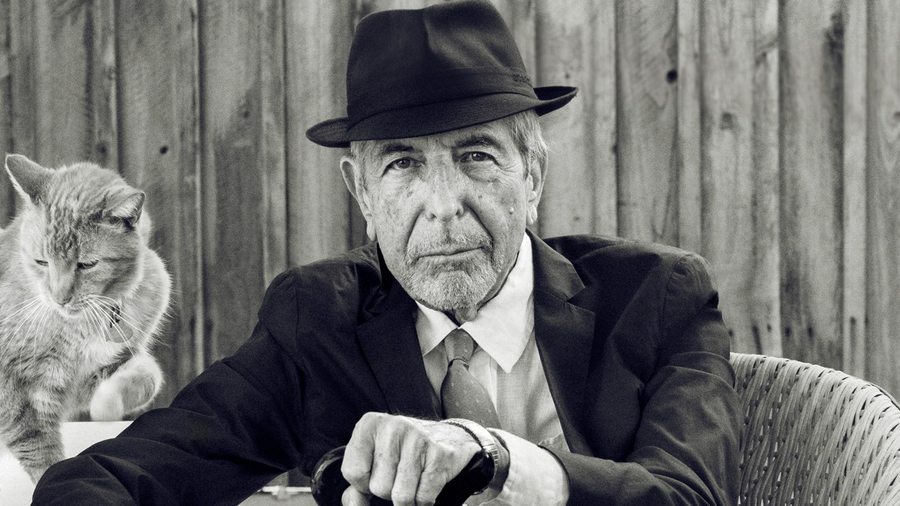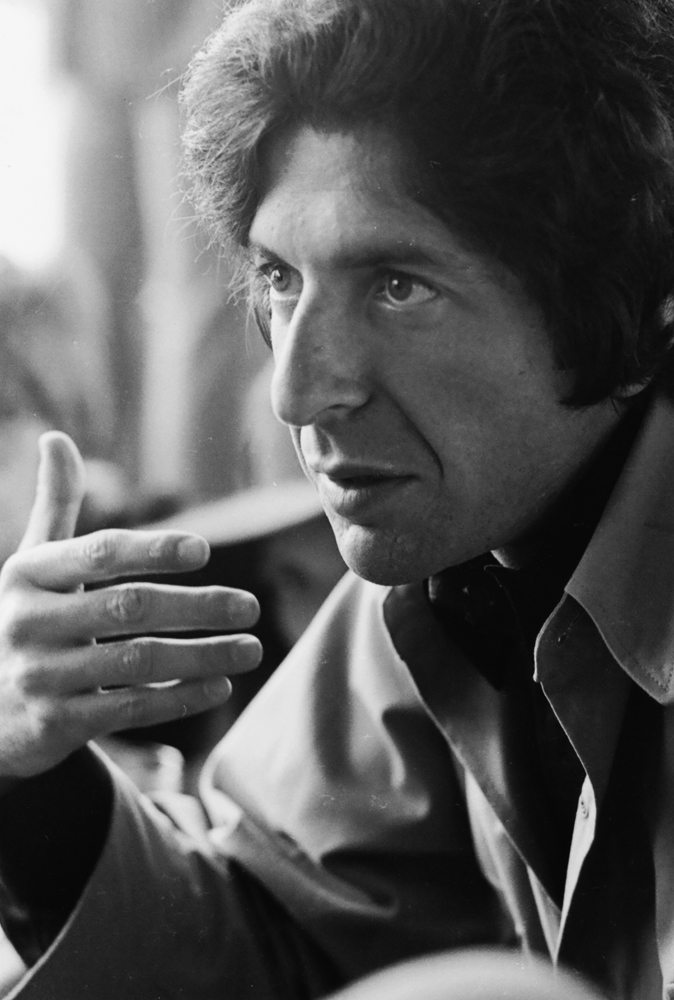Some artists are known for being able to write songs in fifteen minutes on the back seat of a taxi like Bob Dylan. But the Canadian singer, dandy, musician, poet, novelist, and painter Leonard Cohen (1934- 2016) did not belong to this family of songwriters. The musician took more than five years to write his magnificent Hallelujah (1984). The legend says that he scribbled between 80 and 180 different versions of the lyrics, multiplying drafts in his notebooks, before finding the right lines for this folk-rock-gospel song.
Released on Wednesday, October 19th, the valuable documentary Hallelujah: Leonard Cohen, A Journey, A Song, directed by Americans Dan Geller and Dayna Goldfine, traces back the incredible story of this cult song in detail. At times confusing and a bit long, the film’s value lies in the numerous interviews with the artist, his ex-girlfriend, the French photographer Dominique Issermann, and personalities from the music industry. Together, they try to recount the difficult genesis of this song. We learn that Leonard Cohen gave birth to Hallelujah (1984), the favorite anthem used at weddings and funerals, in the midst of his inner turmoil and doubts. The various changes in the lyrics, which Cohen later tested during his concerts, reflected a tormented personal and spiritual journey from the profane to the sacred dimensions. The tension was so intense that the song almost never saw the light of day.
In both the Jewish and Christian liturgies, the word “Hallelujah” describes the joy of the believer. It is used to sing God’s praises. Following the literal meaning of the word, the Canadian singer’s deep voice first interpreted the song as a melancholic prayer before it became quite erotic. The most famous version of the ballad is the one released in 1984 on his seventh studio album V arious Positions, when Leonard Cohen was 50 years old. It combines religious metaphors and crude allusions to pleasure and sexuality. Although the singer was inspired by his study of the Bible and the Torah, and multiplied references to religious texts – notably to the biblical myth of Samson and Delilah – he quickly slipped into a completely different register.
Indeed, in some sentences, the artist seems to address a shattered romance and past sexual joys. It feels like all good things must come to an end. Depending on who is listening to it, the song can be experienced as a praise of a precious intimate memory or as a celebration of the divine. The line “There was a time you let me know / What’s really going on below” is a perfect example of that double meaning. “Below” can refer to the earthly world down here, as well as to a past flame. “This world is full of conflicts and full of things that cannot be reconciled. But there are moments when we can reconcile and embrace the whole mess, and that’s what I mean by ‘Hallelujah’”, Leonard Cohen explained about the brilliant music piece he released after experiencing a dry spell. His two previous records, including one full of synthesizers, had not found their audience. With Hallelujah, it seems that Leonard Cohen wanted to reach some kind of sublime or divine perfection.
The video of a live performance of "Hallelujah" (2009) by Leonard Cohen in London
Although the ambiguous, poetic, sensual, and poignant Hallelujah is now a masterpiece and one of the most beautiful songs ever recorded, the audience gave it a cold shoulder when it was first released in 1984. Columbia, Leonard Cohen’s record company, couldn’t see its unifying potential at the time and did not release Various Positions in the United States, because it was lacking hit songs according to them. It wasn’t until 1991, when Welsh musician and former member of Velvet Underground John Cale did a landmark cover of the song, and until 1994 when late Jeff Buckley’s celestial and disturbing voice transcended the song, that it became a hit. Bob Dylan also did his own version, before numerous TV talent show contestants messed up the song.
When Leonard Cohen died in 2016, Hallelujah topped the charts in France. He became number one posthumously for the first time in his entire career. Today, the track symbolizes the mystical quest of a fascinating artist who started music late in his 30s, after a career as a writer, and ended up broke after living in a Buddhist monastery in California, where he was eventually ordained a monk. As a womanizer and a great seducer, Leonard Cohen yearned for wisdom, hoping to overcome his chronic depression. The poetic staging of this struggle, between earthly desires and a redeeming transcendence that would help him to live and believe in the meaning and value of a life here on earth, is without any doubt what makes Hallelujah so universal.
“Hallelujah: Leonard Cohen, A Journey, A Song” (2021) by Dan Geller and Dayna Goldfine, coming out on October 19th, 2022.
The video of '"Hallelujah" (Live at MTV Japan, Tokyo, Japan - January 1995) by Jeff Buckley















